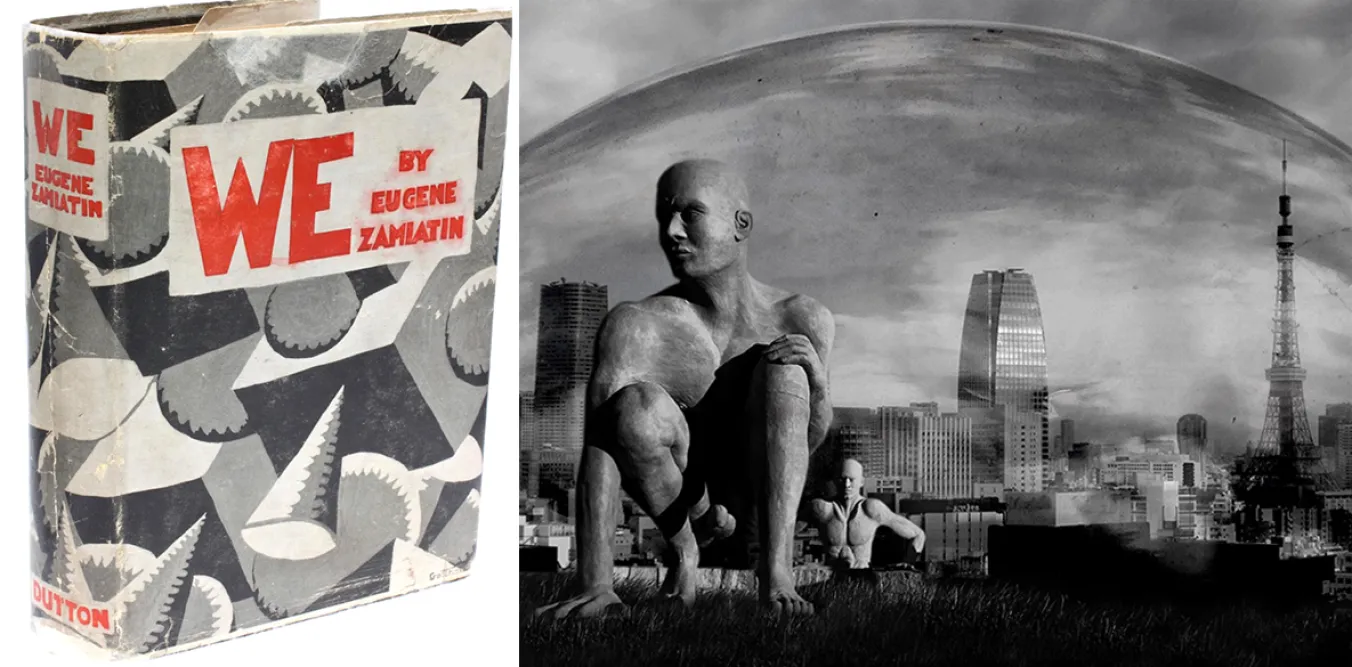
Late Soviet Britain: Why Materialist Utopias fail
Abby Innes, Cambridge University Press, £26.99
MANY people have noticed similarities between popular perceptions of late Soviet communism, the “period of stagnation,” and aspects of modern neoliberal capitalism. Like the obsession with number-crunching and targets that don’t match reality. The fact that nothing seems to work any more. A state-corporate mass media that only allows one point of view. Meaningless elections which reproduce what is effectively a one-party state.
I’m sure you could come up with some more of your own.
[[{"fid":"60984","view_mode":"inlineright","fields":{"format":"inlineright","field_file_image_alt_text[und][0][value]":false,"field_file_image_title_text[und][0][value]":false},"link_text":null,"type":"media","field_deltas":{"1":{"format":"inlineright","field_file_image_alt_text[und][0][value]":false,"field_file_image_title_text[und][0][value]":false}},"attributes":{"class":"media-element file-inlineright","data-delta":"1"}}]]
So, I really looked forward to reading this book and was hoping for a carefully considered comparison between the two systems that might explain these strange similarities. But that’s not what we get.
The author is an academic economist who focuses largely on ideas and theories developed by other academic economists. Abby Innes’s main target is neoliberalism and, if you have the stamina, you will leave much more informed about the arguments that underpin it. However, her treatment of Soviet history and ideas is so scanty and hostile, it often reads like a cold war caricature.
Basically, the Soviet experience is set up as everything that is bad, tyrannical, inefficient and doomed to fail. Any successes under communism are downplayed or ignored. So too is the disastrous post-Soviet experience of capitalism and the fact that according to opinion polls, even now, large sections of the public in eastern Europe look back favourably on the period.
So, this is not the black-and-white story told in this book. But unforgivably given its aim, she notably fails to explain how things worked in the Soviet Union with enough balance or detail to allow the reader to understand why it ultimately broke down.
Instead, Innes’s argument is pretty simple, and it goes like this: what both the “utopian right and left” have in common is an unshakable attachment to ideologies that cannot work. That is because policy in both societies is determined by “closed-loop” thinking. In the case of the Soviet Union this was top-down Leninism and in the West nowadays it’s fundamentalist free market neoliberalism. Both are extreme and unrealistic attempts to create an impossible “materialist utopia.”
While the Soviets thought a planned, publicly owned economy would meet human need and allow the human spirit to blossom, neoliberals assume that if left alone free markets will always create the best outcomes and a free, fair society.
According to Innes they are both wrong, and for the same reasons.
Apparently, it was not always so. Her alternative golden age is the “never-had-it-so-good” decades after the second world war, when sensible policies, not “closed-loop” thinking, crafted a social consensus, welfare states and a more managed economy.
In this period “good” capitalism enlightened politicians, civil servants and experts happily balanced the various demands of workers and bosses, driven by pragmatism and a democratic impulse rather than ideology.
This rosy picture is so simplistic and inaccurate I was left wondering “who is being utopian now?”
While ideology is of course massively important, in the long term the dominant ideas of any society reflect the interests of its ruling classes. Yet, for Innes, the inevitable enrichment and corruption of a business oligarchy happened after the state became ideologically converted to neoliberalism, not before.
In fact, Western capitalist elites from the 1970s abandoned more equal and progressive policies because they needed to tame working-class power and boost their profits. The post-war consensus is therefore better understood as a historical blip and what we have today is simply a return to capitalist business as usual.
Which brings to mind a post-Soviet joke that Innes herself tells at the start of the book: “We always knew that everything the party told us about communism was a lie. What we didn’t know was that everything they told us about capitalism was true.”
Ironically, she doesn’t get it and as a centrist liberal remains just as ensnared in “closed-loop” “materialist utopian” thinking as the ideologues she lays into with such gusto.
While the closing chapters of the book let loose against the neoliberal wreckers, a botched Brexit, corruption and looting during the Covid crisis, the failure to tackle the climate emergency and the drift to authoritarian politics, she is unable to imagine any more radical alternative.
This is a centrist howl of outrage that ultimately leads nowhere. Sadly, based on their public statements and abandonment of Corbyn-era policies, the same will hold true for any incoming Starmer-led government.
Meanwhile, like the Soviet Union in the 1980s, modern capitalist Britain increasingly resembles a system that has run out of steam. How long this “period of stagnation” lasts is ultimately up to us.














